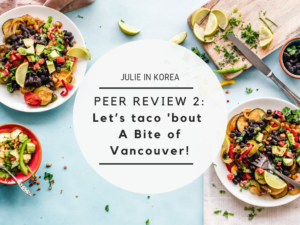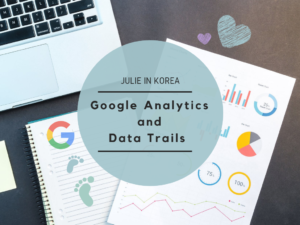As the technological advancements of the Internet continue to grow, it has led and created a space for social media platforms to flourish. The use of social media has become heavily prevalent in the recent generations. Popular applications like Facebook, Twitter, Instagram, and more continues to rise and expand throughout the world. Forums and news discussion websites like Reddit and news outlets like NextShark have become increasingly popular for people to find news and discuss about current issues. Thus, also creating a space for people to voice their opinions and increase the spread of information through different communities. Social media platforms and the Internet have created a democratic space for dialogue. This post will focus on how social media has led to a democratic space where all voices can be heard, as well as touching on the issues that could also arise. We live in a generation now that allows for people to fight for what they believe in. Social media has surrounded us entirely and created a space for people to talk about the issues of racism, LGBT+ rights, politics, campaigns and more.
Social media provides a mean of online communication, engagement of news content, promotion of activities, knowledge, and entertainment. According to Pew Research Centre’s fact sheet, around 69% of the public today uses some type of media. Young adults make up most of this population, but usage by older adults has increased in the recent years. The most widely used social platform is Facebook. Other popular platforms include Twitter, LinkedIn, Pinterest and Instagram. Additionally, in a new Pew Research Centre survey, about 68% of American adults get their news on social media, but many are skeptical of the information they see and think that it may be inaccurate or false. Some of the reasons why they prefer reading news on social media include the interactions with people, the convenience, and the diversity of sources available. The top social media sites where users are exposed to news are Facebook, Reddit and Twitter. Other sites that are less news focus, but still have a general base where news can be found include YouTube, Instagram, Snapchat, LinkedIn, Tumblr and Whatsapp. (Pew Research Centre, 2018) All of these platforms contribute to the ever-growing evolution of news exposure, social media consumption, and development.
Over the years, social media has developed into a public space. In van Dijck and Poell’s article, they discuss about social media and the transformation of public space. Social media has “given rise to an online infrastructure that is profoundly shaping the way in which societies are organized and publics are shaped.” (2015, p.1) It has become so ubiquitously used that it has spread to various sectors in society. Social media has created a public space that involves the audiences, publics and communities through online platforms. People are more likely to speak out freely online due to what John Suler’s article, describes as the “disinhibition effect”. They feel more uninhibited, and can express themselves more openly due to how it is a cyberspace, a virtual environment online. It is virtual space for them to speak out on how they feel about a situation, their personal opinions, emotions, fears and wishes. This is called a “benign disinhibition.” On the other hand, there can be negativity as people use these social spaces to disseminate their ideas. This is called the “toxic disinhibition” effect. (Suler, 2004) It can cause issues such as echo chambers and the spread of false news. For example, Facebook tends to be problematic in this – it is an echo chamber for recirculation of false information. What we see on our newsfeed on Facebook might not actually be true, but because we see this, the false information will continue to spread and spread by communication. There are also the issues of censorship, public shaming, hate speech, criticisms, and anger. But primarily, I will be addressing the ways social media can be an open space for voices to be heard and how people can connect to one another.
Social media leads to the creation of spaces for voices to be heard:
In Why We Post, the site that expresses social media through the eyes of the world, I found some important points to take from their discoveries. First, “ Social media has created new spaces for groups between the public and private”. It has become a vital part of relationships within established groups, including the family. Social media has created a space for people with common interests to connect, and for strangers to become lifelong friends, or even soul mates. For example, online dating has been very common through the exposure of social media sites like Instagram, where people can slide through your direct messages instantly, or commenting and liking your posts. Facebook also gives a safe space for people to freely talk about their opinions, create groups, and more. For example, with the rise of digital spaces like the Subtle Asian Traits Facebook page, it has created a family like community where Asians can contribute to discussion by posting memes and thoughts surrounding the Asian immigration experience and Asian culture. It has become a cultural phenomenon with over a million followers, where people are free to express their feelings about racism against minorities, as well as an open place for them to share about their experiences.
Another interesting point that I found relevant from Why We Post is that “Memes have become the moral police of online life”. Memes are used often in a variety of social media platforms. It can convey a serious or light-hearted message, but in both cases, it can “often assert one set of values and criticize others.” It has become a way for people who are shy in expressing their own opinions to use memes to broadcast their feelings instead. It provides a space for them to get their point across without being too direct. With the growth of memes, social media is a great way for this element of online culture to be expressed and spread widely across the communities.
Social media has paved the way for discussion of news:
As social media is so ubiquitously used, it has informed us through a range of different platforms. Traditional media that use to control the dissemination of information has been replaced by other institutions such as Facebook, Twitter, and Google. (SUCIU, 2018, p.26) Through Twitter, people are able to get news in an instant, bypassing the censorship from news outlets and giving people access to information that is instantaneous, and promotes discussion between people. Reddit, a collaborative news platform has become an open space where people can pour out unbiased opinions and thoughts. Social media platforms has also led to a rise in discussion for culture oriented news and information. For example, spaces like Subtle Asian Traits and news outlet, Next Shark – which is a digital publication outlet for Asian oriented news has led to Asians getting more exposure due to social media. On Next Shark’s Instagram, it has created a participatory environment where they have certain content posted and they ask their audience for opinions about trending issues. Their audiences are extremely engaged and there are even heated discussions on some posts.
Social media can amplify important voices and issues:
I came across this statement by Ethan Zuckerman that I found in his informative post. He states that by sharing content on personal networks in social media, it signals issues that we see as the most important. It leads to our friends and communities that we are engaged with to pay attention to these issues as well. It allows for us to become opinion leaders and influencers in the online community. Tweets or posts can be liked or shared by anyone that follows us. Particularly, people with a higher amount of followers have an even bigger influence. For example, there are many celebrities or notable figures that use social media for the better good. Famous actress, Emma Watson is known for her passion in fighting for women’s rights and gender equality. She is the UN Women Goodwill Ambassador and uses her social media to promote the UN Women’s HeForShe campaign, which is an invitation for men and people of all genders to stand in solidarity with women and commit to take action. She encourages dialogue for people to contribute to this movement of gender equality.
This concludes my take of what I consider social media as being a democratic space for dialogue and voices to be heard. It has created a digital, online environment for news to be heard, discussion to be formed, and change that can happen. Likewise, social media platforms can also lead to sensitive issues. I feel that with all online platforms, we should take caution on what we see or hear. Social media platforms can be a good or bad aspect, depending on what we take of it. We should always be aware of current news and issues, and to understand the importance of these issues, making sure that the news is correct and accurate.
References
Demographics of Social Media Users and Adoption in the United States. (2018, February 05). Retrieved from http://www.pewinternet.org/fact-sheet/social-media/
Matsa, K. E., & Shearer, E. (2018, September 21). News Use Across Social Media Platforms 2018. Retrieved from http://www.journalism.org/2018/09/10/news-use-across-social-media-platforms-2018/
SUCIU, I. (2018). Credibility and Freedom of Choice in Social Media in Relation with Traditional Media. Journal of Media Research, 11(3), 24–34. https://doi-org.proxy.lib.sfu.ca/10.24193/jmr.32.2
Suler, J. (2004, June 1). The Online Disinhibition Effect. Retrieved from http://truecenterpublishing.com/psycyber/disinhibit.html
van Dijck, J., & Poell, T. (2015). Social Media and the Transformation of Public Space. Social Media + Society. https://doi.org/10.1177/2056305115622482
Why we post. (2019). Retrieved from https://www.ucl.ac.uk/why-we-post/
Zuckerman, E. (2018, May 30). Six or Seven Things Social Media Can Do For Democracy. Retrieved from http://www.ethanzuckerman.com/blog/2018/05/30/six-or-seven-things-social-media-can-do-for-democracy/



